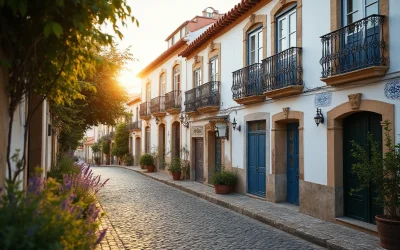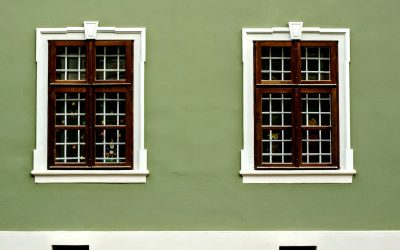Getting a Portugal visa isn’t as straightforward as you might expect. Portugal stands among the top ten countries where people apply for Schengen visas, just like France, Spain, Germany, Switzerland, and Austria. The country’s high rejection rate should make you think twice before sending in your application.
Many expats and digital nomads still choose Portugal despite these hurdles. You’ll find several visa options based on your needs. The D7 Visa, called the “Passive Income Visa,” asks for proof of €9,840 yearly net passive income. Digital nomads must earn about €3,280 monthly in 2024 to qualify for the D8 Visa. Living costs in Portugal are 38% lower than in the US, which makes it an excellent choice for many people.
Let us help you understand Portugal’s visa types, requirements, and application steps. This piece gives you a clear picture of what to expect when you apply. We’ve packed it with valuable tips to help you get through Portugal’s visa system, whether you want a short stay or plan to move there permanently.
Who Needs a Visa to Enter Portugal?
Your nationality determines if you need a visa to enter Portugal. The country follows Schengen Area visa policies because it belong to the European Union and the Schengen Agreement.
Visa-free countries and ETIAS rules
Citizens from 117 countries can enter Portugal without a visa for short stays up to 90 days within 180 days. These include:
- All EU/EEA countries and Switzerland
- Major countries like the United States, Canada, Japan, Australia, and the United Kingdom
- Several Latin American nations, including Brazil, Argentina, and Mexico
- Select Asian countries such as Singapore, South Korea, and the special administrative regions of Hong Kong and Macau
Nationals from these visa-exempt countries will need an ETIAS (European Travel Information and Authorisation System) before travelling to Portugal starting in 2026. This pre-travel authorisation is an electronic system that checks travellers against security databases rather than visas. Your ETIAS will remain valid for three years or until your passport expires, whichever comes first.
Non-visa-free countries and Schengen requirements
Travellers from about 135 countries must get a Schengen visa before visiting Portugal. This applies to African nations, much of the Middle East, and parts of Asia. The application needs:
- Valid passport (valid for at least three months beyond your planned departure)
- Travel medical insurance
- Proof of accommodation
- Return ticket
- Bank statements showing sufficient funds
- Travel purpose documentation
The processing time ranges from 15-30 days based on your nationality and application volume.
Exceptional cases: banned and stateless applicants
Travellers from specific countries need airport transit visas even when passing through Portugal without entering. This rule applies to nationals of Afghanistan, Bangladesh, Democratic Republic of Congo, Eritrea, Ethiopia, Ghana, Iran, Iraq, Nigeria, Pakistan, Somalia, Sri Lanka, Guinea, Senegal, and Uzbekistan.
Diplomatic passport holders, flight crew members, and EU citizens’ family members usually don’t need airport transit visas. People with valid visas or residence permits from other Schengen countries typically don’t need a separate Portuguese visa.
Special documentation rules apply to stateless persons or refugees. Officials process these applications individually according to international agreements.
Is It Easy to Get a Portugal Visa?
Your success with a Portugal visa application depends on several key factors. Let’s examine what affects your chances and how Portugal stacks up against other Schengen countries.
Factors that affect visa approval
The quality of your documentation and accuracy of your application are the foundations of getting a Portugal visa. Portuguese authorities review all your required documents carefully. You’ll need a valid passport, financial statements, proof of accommodation, return tickets, and detailed travel insurance. Your nationality matters, and applicants from certain countries face closer scrutiny. You can show strong ties to your home country through your job, property ownership, or family connections that prove you’ll return after your visit. A clear explanation of your travel purpose with a detailed itinerary boosts your chances of approval.
Common reasons for rejection
Missing documents stand as the most significant problem behind Portugal visa rejections. You might face denial if you can’t prove enough funds. Portugal asks for at least €9,840 in a Portuguese bank account for certain visas. False information or fake documents will get your application rejected right away. People also get rejected for poor travel insurance, invalid reference letters, or unclear travel purposes. Applicants with past visa problems or criminal records have a higher chance of rejection. You’ll face automatic denial if you miss your visa interview without a good excuse.
Portugal’s visa rejection rate compared to other Schengen countries
Portugal’s visa rejection numbers have changed over the last several years. The country rejected 11.3% of 206,420 visa applications in 2024, 30% lower than last year. These numbers look good compared to Malta’s 38.5%, Estonia’s 27.2%, and Belgium’s 24.6% rejection rates. Schengen visa rejections worldwide dropped slightly to 14.8% in 2024 from 16% in 2023. The global travel gap is clearly shown in the numbers. African applicants face higher rejection rates at 27% compared to Asian applicants at 13% in 2023.
Portugal Visa Types Explained
Portugal has several visa categories that fit different needs and stay durations. You need to know these options to submit a successful application.
Tourist and Schengen visas
The Schengen visa lets you stay in Portugal for up to 90 days for tourism, business, or family visits. You can use this visa in 26 European countries with single or multiple entries. Border officials might ask for extra documents to prove you can pay for your stay and return trip – having a visa doesn’t guarantee entry. The visa costs about €80, but children aged 6-12 and some nationals with EU agreements pay less (€40).
D7: Passive income and retirement visa
The D7 Visa works great for non-EU citizens who have steady passive income. While it’s perfect for retirees, you need at least €870 monthly (€10,440 yearly). Families need more – 50% extra (€435) for spouses and 30% more (€261) for each child. The visa lasts two years; you can renew it for three more years. After living in Portugal for five years, you can ask for permanent residency or citizenship.
D8: Digital nomad visa
Portugal started the D8 visa in 2022 for remote workers and freelancers who work for companies outside Portugal. You’ll need to show you make about €3,480 monthly or €36,480 yearly. You can choose between a one-year temporary stay visa or a two-year residence permit that you can renew for three more years. Living there legally for five years opens the door to permanent residency.
D1–D3: Work and professional visas
D1-D3 work visas cover different job situations. The D1 Visa fits people with regular job contracts from Portuguese companies. The D3 Visa helps skilled professionals like engineers, IT experts, academics, and researchers get the EU Blue Card. Both need valid work contracts and cost between €90-120 to process.
D4–D6: Student and family reunification visas
The D4 Student Visa helps students who want to study in Portugal for over three months. Some countries’ citizens don’t need visas for short programs under 90 days. The D6 Family Reunification Visa lets foreign residents bring their family – spouses, young children, parents over 65, and siblings under their care. The process usually takes about 60 days.
D9: Golden visa and recent changes
The Golden Visa (D9) changed a lot in 2024-2025. You can’t qualify through real estate anymore. Now you can invest in funds (minimum €500,000), make cultural donations (€250,000), or create jobs (at least 10). After five years of keeping your investment and spending 7 days yearly in Portugal, you can apply for citizenship.
How to Apply for a Portugal Visa
The Portugal visa application needs good preparation and timely submission. A clear understanding of the process will make your trip to approval easier.
Where to apply: consulate vs in-country
You should submit your Portuguese visa application at Portuguese consulates or embassies in your country of citizenship or legal residence. Several countries use external service providers like VFS Global or BLS to handle applications. People without Portuguese consular representation can submit applications through consulates of other Schengen countries representing Portugal’s interests.
The application process is different based on visa type. Short-stay Schengen visas need consular application before travel. Long-term national visas need a two-stage process. You get your original visa approval at a consulate first. Then you apply for a residence permit through AIMA (Agency for Integration, Migrations and Asylum) after reaching Portugal.
Required documents checklist
You need these essential documents:
- Completed visa application form
- Valid passport (valid for at least 3 months beyond planned departure)
- Two similar passport-size photos
- Travel medical insurance (minimum €30,000 coverage)
- Proof of accommodation
- Return ticket reservation
- Bank statements showing sufficient funds
- Criminal record certificate from your country
Each visa type needs specific documents. For example, D7 applicants need proof of passive income, while work visa applicants must show employment contracts.
Tips to improve your chances of approval
The application process takes time, especially when processing times exceed official estimates. Document errors lead to most rejections, so ensure all papers are complete and accurate. Show strong connections to your home country through employment proof, property ownership, or family ties. Your travel plans should be detailed with clear purpose statements.
Processing time and what to expect
A Schengen visa usually takes 15 calendar days to process but might need 30-45 days in peak seasons. National visas (D-type) require 60 days for processing. D7 applications can take 6-8 weeks at embassies plus extra time for residence permits. Some nationalities might wait longer.
The process includes biometric data collection and fingerprinting for many applicants. After approval, the embassy will tell you how to collect your visa or passport.
Conclusion
Getting a Portuguese visa needs good preparation and attention to detail. Portugal has a high Schengen visa rejection rate, but you can improve your chances by knowing what your nationality requires.
You should check if you need a visa based on your citizenship. Currently, citizens of countries can enter other countries without a visa. This will change in 2026 when ETIAS comes into effect.
Picking the correct visa type is vital for your case. The D7 visa works for passive income, D8 suits digital nomads, and standard work visas have their own financial and paperwork needs. Portugal’s cost of living is lower than other Western countries, making it an appealing choice despite the arduous application process.
Your paperwork can make or break your application. Most rejections happen because of incomplete applications, insufficient proof of funds, or weak ties to the home country. You should start early, prepare your documents carefully, and clearly show why you want to travel. Portugal’s visa system might seem complex, but it becomes easier with proper planning. Whether you want a short Schengen visa holiday or long-term residency through D-type visas, understanding the process will make your trip to Portugal easier. The reward makes it worth the effort – thousands of people successfully move there each year to enjoy Portugal’s rich culture, beautiful landscapes, and relaxed way of life.
Disclaimer: The information contained in this article is for general informational purposes only and does not constitute legal, immigration, or tax advice. While efforts have been made to ensure the accuracy and timeliness of the content, visa requirements, eligibility criteria, and application processes are subject to change by Portuguese and European Union authorities. Readers are strongly advised to consult the appropriate consulate, immigration lawyer, or authorised advisory service before making decisions or submitting visa applications.
Madeira Corporate Services, Lda. (MCS) disclaims any liability for errors or omissions in the content and any loss or damage arising directly or indirectly from reliance on the information herein. No part of this article should be construed as establishing a client-consultant relationship. If you require personalised assistance or wish to explore your options, we recommend booking a consultation with one of our advisors at www.mcs.pt.
The founding of Madeira Corporate Services dates back to 1996. MCS started as a corporate service provider in the Madeira International Business Center and rapidly became a leading management company… Read more




